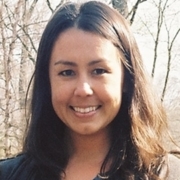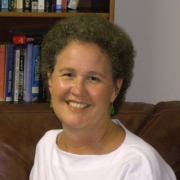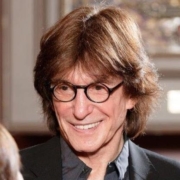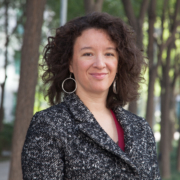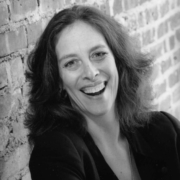 Yanan Yu tells a story that raises some interesting questions about how ability should be defined. Is it enough that she has a level ten certification in piano? And a master’s degree? And now works at the BBC? Or does she need something else to be considered able?
Yanan Yu tells a story that raises some interesting questions about how ability should be defined. Is it enough that she has a level ten certification in piano? And a master’s degree? And now works at the BBC? Or does she need something else to be considered able?
This episode was a finalist in the category of Best New Artist in the 2023 Third Coast/Richard H. Driehaus Foundation Competition!
Today’s episode was created, written, produced, and edited by Yanan Yu. Johannah Fahey was the executive producer and Brett Lashua and Will Brehm were the producers. Flux theme music by Joseph Minadeo of Pattern Based music.
The piano pieces in this episode, listed below, are all played by Yanan Yu:
Claude Debussy: Ballade L. 70
Frederic Chopin: Etudes Op. 10 No. 3
Franz Liszt : Un Sospiro, Trois Etudes de Concert S.144
Sergei Rachmaninoff: Elegy Op. 3 No. 1
Wanghua Chu, 春江舟影
Thanks to Haozhou Ding, Zeyu Wang, Yishuang Xu, Xiaotong Wang and other activists across the globe. Yanan would not have been able to express the complexities surrounding this issue without their support. Finally, Yanan hopes that her efforts may contribute to some changes, however small, in her peers’ lives.
Prologue
I’ve spent my entire life being defined by others. Being defined by other’s assumptions about what I can and can’t do. Assumptions have always been made about my abilities and my limitations. Is this why we educate ourselves? Why have I educated myself? To build up abilities that matter? To build up abilities that matter to others? Who decides who has ability and who doesn’t? Who decides which abilities matter more than others? Do we define others based on our own abilities or experiences? Or on our limited knowledge of other people? Everyone lives with all kinds of limitations, so why are some (such as mine) seen as more limiting than others?
Self-Introduction
That’s me you can hear playing on the Yamaha upright piano in my grandmother’s bedroom on the third floor of an old-fashioned apartment building in my hometown — Huaihua (怀化. Only 4 million people live there. It’s a small, beautiful city in the south of China in Hunan province, famous for its oranges. The modern piano is out-of-place in her little room, which is crowded with old Chinese furniture, a black wooden canopy bed, a matching wardrobe, a black table, and a wooden sofa.
If you listen carefully, then you can hear the passing traffic, the honking horns of the countless motor scooters that clog Yingfeng Road with pollution and noise. My home at the time was just down the road. I recorded this ballade by Debussy on an unremarkable summer afternoon.
My name is Yanan Yu. I have been playing the piano for over 17 years. The piano has been my faithful companion since I was eight years old. I learned to play because my mother wanted me to have a friend who would accompany me in any circumstances throughout my life. I now live in London. Unfortunately, there is no piano in my makeshift home, and it sometimes feels like I’ve lost an important part of my life.
Trip
To get a high-quality education in China in the very best schools I had to move to strange faraway cities, time and time again. So, I’m used to catching trains. By commuting alone from a very young age I learned to familiarize myself with new environments in a short amount of time. I also learned to deal with various troubles on my own and hide my sense of unease.
When I was 7 years old, I started primary school in the capital of my province, Changsha. It usually took me around seven hours to get to school. My parents would accompany me on my journey in the first few years. But when I was 12, they asked me to go on the trip alone. For my family, which was not wealthy at the time, me traveling by myself meant that they could save 300 Yuan – about 35 pounds or 50 US dollars.
At 16, I went to a well-known senior high school in Chongqing, a big municipality in China. It took me around 9 hours to get there. This seems like a long trip compared to the trip I’m currently taking from where I live in London to St Pancras station which only takes me 50 minutes.
But getting to my senior high school felt like a short trip compared to my journey to my university at 44 hours. That’salmost two days of continuous travel all alone when I was still relatively young.
It was a challenging adventure. I’d prepare two days’ worth of food. When I got on the train, I’d first familiarize myself with the surrounding facilities, then I dozed or listened to music.
At some point, I’d get off the first train, find the right platform for the next train and eventually, exhaustedly, I’d reach my destination.
These long journeys are the greatest gift that my family has given me.
My grandfather, Xinle Yu (余心乐), was born in 1933 and went to university in the 1950s majoring in hydraulic engineering. At that time, undergraduate students were a rarity in Mao Zedong’s new People’s Republic of China. My grandfather firmly believed that a high-quality education is essential for everyone. All my family are influenced by his thought. They believe that education is very important, that it is the only way to go out into the world, to be stronger and to make a better living.
Because my family believed this, they’ve tried their utmost to provide me with the best quality education possible from primary school to my postgraduate studies.
At university I studied music performance specializing in piano performance. I mastered solfeggio,- sometimes called sight-singing-, it’s the ability to read music by sight or by hearing and accurately sing. I learned music theory and music concepts. After all this study I earned my Level 10 Piano Certification.
Work but not music
Despite all my music qualifications, the job I got after my graduation had nothing to do with music. I started as an intern. I earned 50 Yuan per day (which is about 6 pounds or just over 8 US dollars). This was far from enough to cover my daily expenses in Beijing. But I still tried my best to absorb the new things I was learning and to complete all my assignments diligently. After two-weeks my boss suggested I take some exams because I did so well, then I luckily got offered a full-time job.
Everything soon became different from what I expected as I had a co-worker who didn’t like me. I didn’t know what was so wrong with me that she kept targeting me. When she said hurtful words to me or showed me her cold face, I felt utterly helpless. And when my colleagues witnessed what was happening, they preferred to stay silent. I started to have a vague feeling that I might not be suitable for this role in this industry, and it filled me with despair.
That year I felt I had mental health problems, but I never tried to seek help from professionals. “You’ve got such a decent job, many people envy you, you shouldn’t complain.”
I felt ashamed because when I talked to my peers they repeatedly replied in this way.
During work time, I emptied myself of all emotion and worked like a machine.
It takes all my effort to forget the details of what happened to me in that year. It’s like a recurring nightmare. That’s the main reason why I finally quit my job and left the city. My parents tried to persuade me to keep going and to be tolerant, but I said: “If I keep working in this industry, I will end up being very depressed.”
Still, when talking about our jobs, some of my well-educated friends were keen on reminding me how wonderful our lives were, saying things like: “I think we are excellent and lucky, we are outstanding from the whole group”, and “we are quite different from those who are less educated and trapped in certain jobs or at home”
And it’s true, I suppose. That was a very, very good job for someone like me and only a lucky few would have been offered it.
In contrast to me and some of my well-educated friends, the majority who were less educated were usually tied to a certain kind of job.
Research Findings
Most of them usually start work late in the morning or at noon. They continue working on their feet until 12 or 1 AM. Working in massage shop in China is high-intensity labor with short rest times and few holidays:
Yishuang:
他们,就是业绩至上,只看业绩,不管你用什么样的方式、手段。
Translation:
They treat performance as the top priority. They only look at performance.
Yishuang worked in the health care massage industry for several years but finally chose to leave:
Yishuang:
对职业的要求其实我也没有那么高,就是正常的上下班的时间,然后不熬夜,对,然后有自己的时间。这样我下班之后就会有自己的空间,有自己的生活。
Translation:
Actually, I don’t have high requirements for my occupation. I wish to have a normal commuting time, to not stay up late and master my own time after work, enjoy my own space and my own life.
Not many people know that massage practitioners often struggle with tenosynovitis, frozen shoulder, spine-related and cardiopulmonary diseases. These are some of the occupational hazards for practitioners who provide massage in China.
Female or male they may also face abuse and sexual harassment when they are working. As they are paying for a service, customers think they can touch their massage practitioner in any way they want to. For my masters’ research, I talked to several massage practitioners in China about the kinds of conditions they worked in. One young woman told me that when she told her boss that she was being sexually harassed by a middle-aged customer, her boss simply said: “It’s just a touch. It doesn’t hurt you, so bear it.”’
Are you thinking about how hard their lives must be? On top of having a job that relies heavily on manual work; of having long and irregular hours; of sometimes not being respected in the job that they do; the massage practitioners I talked to are also visually impaired.
But it’s not the blindness that makes their lives harder. It’s the assumptions that are made about them being visually impaired that limits their lives, especially in a vision-centric world where vision and cognition are intertwined.
In this world, it’s generally thought that people with blindness are less able than sighted people to acquire knowledge. That people with blindness should have less opportunities and more restrictions.
Often, our visual impairment is seen as a deficit that affects all our abilities as well as our productivity and efficiency.Ironically, our parents and family members may also think this.
My name is Yanan Yu. I was born and raised in a small, beautiful city called Huaihua. I have been playing the piano for over 17 years. And I am a girl with blindness.
People, like me, with severe visual impairments tend to experience more prejudice and are less likely to be employed in the general workforce than people without a disability and even people with other forms of disability.
Zeyu Wang ran a respected NGO with two other visually impaired people in China that advocated for visually impaired people. He told me about a common dynamic (which I’m familiar with) between sighted people and visually impaired people:
Zeyu: 同情你的时候他自己其实是会有一种优越感的。他会感动自己,自我感,自我陶醉。
Translation: When he sympathizes with you, he will actually have a sense of superiority, or he will feel moved by his own sympathy.
There are more than 17 million visually impaired people in China and massage is the most practical job for many of those with a severe visual impairment.
As healthcare massage in China is typically undertaken by people with blindness there is an overemphasis on the connection between blindness and massage resulting in a stereotype that assumes visually impaired people have more sensitivity to touch and better concentration which may not always be the case. If you are visually impaired, then there are many ways of feeling your way through the world.
Some visually impaired people also internalize these assumptions and have a distorted sense that massage is their destiny; that it is the only work that they’re equipped to do. Massage businesses in China usually provide their employees with meals and accommodation so there’s no need for them to travel to work. This can lead some individuals with blindness to also have a distorted sense of job satisfaction and a fear of leaving their “comfort zone” to pursue other opportunities as they think this might create too much potential uncertainty in their lives.
Those who have received tertiary education are more likely to leave the massage industry. While those who have successfully started non-massage careers are regarded as (or may regard themselves as) elites. They tend to think that they are superior to those who work as massage practitioners, and they sometimes belittle the massage profession. But their success is exceptional, it can’t be easily attained by their peers, especially given the existing bias about blindness.
Here’s Zeyu again:
Zeyu: 其实这就回到一种叫个人模式吗,就是他所有的成败都要归咎到个人身,就努力。你看,这个这个这个人他是一个榜样,你们所有残疾人得向他学习。社会已经给你们提供了比以前好那么多的条件了,那你们除了这个榜样以外,你们其他人为什么没有跟他一样呢?所以这是你们个人的问题,不是社会的问题。
Translation: In fact, this goes back to the individual model of disability; all successes and failures are attributed to the individual. Look! This person is a role model. All disabled people must learn from them. Society has already provided you with much better conditions than before. Apart from this role model, why can’t the rest of you achieve things like this person? So this is your personal problem, not a social problem.
Of course, there is nothing wrong with massage. Most visually impaired people in China do not have access to higher education and massage is an effective, reliable way for them to feed themselves. But this also creates a division between us and them.
I am one of around 200 severely visually impaired people in China per year that have access to university.
Even though I am seemingly lucky, that doesn’t mean that it isn’t hard too. Many of us are excluded from most occupations, even with a bachelor’s or master’s degree, and even if we are perfectly capable of undertaking these roles. We also often face various forms of stereotyping and discrimination from our employers and in many cases, our equal employment rights are violated.
A hierarchy of disabilities exists where disabled people are divided according to our impairments. These classification methods are drawn from a medical perspective to recognize how serious our impairment is and support us.
But that doesn’t mean I don’t despise it. I absolutely hate this categorization. I am always defined by my disability. I am called “disabled” due to attitudinal barriers which turn into actual barriers and systemic exclusions which are based on prejudice. I am seen first and foremost as an impaired, abnormal person. Viewing me in this way diminishes the fact that I am an independent and dignified person.
Why do we always focus on people’s impairments? Why are so many assumptions made about visually impaired people? Why don’t we shift our attention to people’s – people like me – abilities?
Independent and dignified
My name is Yanan Yu. I am a girl with blindness, and I am an independent and dignified person.
When I go to new places, I force myself to remember the route by drawing a simple map in my mind from beginning to end. Smell, sound, large buildings and even the length of every street are my signposts. By memorizing these details, I can travel between locations independently. I was once abandoned by my classmate on a busy street. I was left alone panicking and helpless. Because of that experience I now force myself to remember, it’s the key to my safety when I take that route again. And when I do, I can see where I need to go inside my head. Since I was a child, my interior visions have helped me to navigate my own way in the world. Not surprisingly, I suppose, this is a world that looks very different to me.
I don’t just use smells to make my own way in this world. For me, collecting fragrances is also one of my hobbies.
Every childhood summer, my grandma used to weave jasmine into a wreath to wear on my head. Wearing that wreath and the sweet summer smell of that flower made me feel beautiful. My grandma’s love for me had a smell: it smelt like jasmine.
For me, smell is the key that opens the door to my memories. It’s more reliable and meaningful than visual photographs, smells are my aromatic photographs, they conjure places in my mind’s eye. They take me through time and space to relive all the details of a single moment: the smell, the temperature, the sounds, and my mood…
Epilogue
People always make assumptions about our ability, define us according to our impairments or limitations. But when you don’t know us, please don’t assume that we are not able. People always make assumptions about my abilities, define me according to my impairment or limitations. But when you don’t know me, please don’t assume that I am not able… for my life is a melody that continues to play …
Want to help translate this show? Please contact info@freshedpodcast.com
Social Issues
Disability Theories and Models and their Implications for People with Disabilities
Stigmatizing and Stereotyping People with Blindness: The Opposite Tendencies
Coping with Stigmatization and Discrimination Related to Blindness and Low Vision
Disability, Ethnicity, and Childhood: A Critical Review of Research
Visually-Impaired Women on the Move: The Intersection of Gender and Disability
The Politics of Beauty, Sexuality, and Disability in Blind Massage
Adapting the Brief COPE for Chinese Adolescents with Visual Impairments
Stigma and Loneliness in Visually Impaired College Students
Visual Impairment and Mental Health: Unmet Needs and Treatment
The Journal of Visual Impairment & Blindness
Employment
Out of Her Hands: Trials and Trauma of a Blind Masseuse
The Blind Massage Policy for Employment Rights of Persons With Visual Impairments in China
Lifestyle in Visually Impaired or Blind Massage Therapists: A Preliminary Study
Employment Barriers for the Blind & Visually Impaired
Employment and Unemployment Rates of People Who Are Blind or Visually Impaired
Beyond Employment Rate: Earnings of People with Visual Impairment
Characteristics of “Reasonable Accommodation” and its Application in Employment in China
Rights and Inclusion
Rhetoric and Reality: Litigation Rights of Chinese Disabled People
The Development of a Legal System of Disabled People in China
Environmental Adaptation of Personalized Development of Visually Impaired in Colleges
An Examination of Education Landscape for People with Visual Impairment in China
Inclusive Higher Education for Students with Disabilities in China
Choices and Transition from School to Adult Life: Experiences in China
Multimedia Resources
Abuse of Blind Massage Therapists in China
Going Blind: Coming Out of the Shadows with Vision Loss
Have any useful resources related to this show? Please send them to info@freshedpodcast.com

